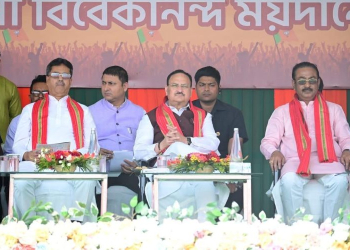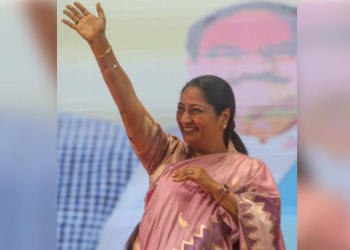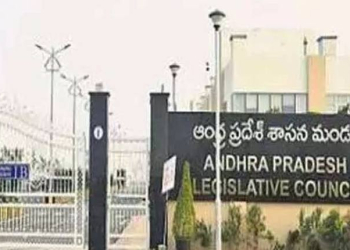New Delhi: As the construction of the grand Ram temple in Ayodhya is underway, Champat Rai, general secretary of Shri Ram Janmabhoomi Teerth Kshetra Trust, spoke to IANS on several aspects involving the temple and developments related to the town, etc.
Excerpts of interview:
Q: When will the construction of Ram Mandir be completed?
A: Ram Lalla will come to the sanctum sanctorum of the temple in December 2023 when the general public will be able to have darshan. At present, the work of raising the plinth is going on. It will take about 17,000 blocks of 2.5 tonnes. A total of 14,000 blocks have been installed, and it is expected that the work will be completed in 15 to 20 days.
The work of placing the carved pink sandstone is also going on for two months, and about five layers have been completed. About 40 per cent work of the entire temple has been completed.
Q: What is the most special thing about building a temple?
A: Carving is the most important thing in building a temple. The important point is that such a huge temple has not been made of stones anywhere. The carvings in stone will be a unique thing for the devotees.
Q: How much development will come from the people visiting Ayodhya and will there be an increase in employment in the region?
A: Ayodhya is a pilgrimage site. People come here to have darshan of God. Ayodhya is a Dham and Living here is liberating. Around 50,000 people come here on normal days and when the Ram temple is built, more than two lakh people will come here daily.
Whether they come by air, by road or by any other means, the state and Central government will benefit. Businessmen and shopkeepers will benefit from the increasing footfalls of devotees in Ayodhya.
Q: Approximately, how much money is being spent for the construction of the temple?
A: When palaces of big kings were built, was there any budget? Lord Ram is the king of kings, so there is no budget. However, anyone who wants can calculate the budget.
Q: When there was talk of building the Ram temple, it seemed there would be a ruckus. But when the decision was made, neither the opposition parties, nor people belonging to any caste or religion opposed. Why so?
A: There was truth in the court judgment. Attempts were made to suppress the truth, so fights were taking place, but when the truth came out, the fight ended and everyone accepted the decision.
(IANS)



















